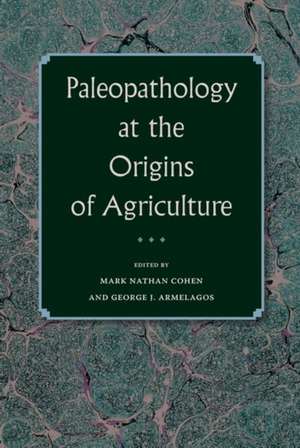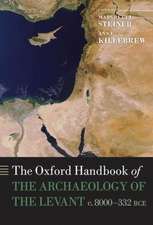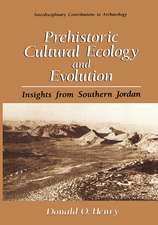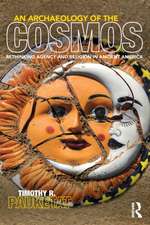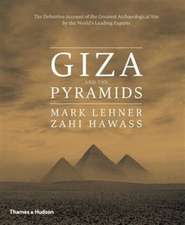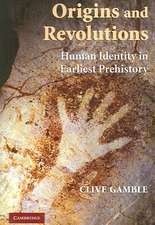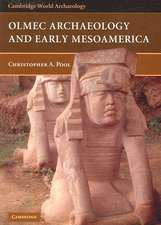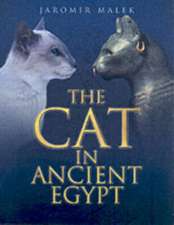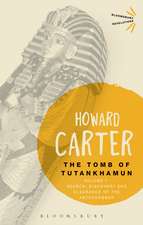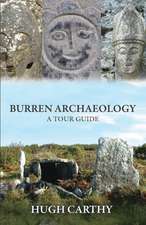Paleopathology at the Origins of Agriculture: Bioarchaeological Interpretations of the Human Past: Local,
Editat de Mark N. Cohen, George J. Armelagosen Limba Engleză Paperback – 29 apr 2013
Makes an important contribution to our understanding of the challenges our ancestors faced during the transition from hunting and gathering to agriculture. . . . A well-organized and highly readable volume that synthesizes an enormous amount of data on what is perhaps the most significant economic transformation in the history of our species. "American Anthropologist"
In 1982, the Conference on Paleopathology and Socioeconomic Change at the Origins of Agriculture was held in Plattsburgh, New York, to examine previously untested theories about how the adoption of agriculture had impacted human health. The collection of those conference proceedings transformed into this landmark book that set the standard for how to collect, analyze, and interpret osteological data in the study of health transitions. Using skeletal pathologies, the contributors examine how the transition from foraging to farming affected human health and nutrition.
Now back in print and for the first time in paperback, "Paleopathology at the Origins of Agriculture" is a foundational piece in bioarchaeological literature and a central source of information regarding the impact of early farming on socioeconomic evolution. It remains a highly cited reference for archaeologists and physical anthropologists.
Contributors present data from nineteen different regions before, during, and after agricultural transitions, analyzing populations in Africa, Asia, the Middle East, Europe, and South America while primarily focusing on North America. A wide range of health indicators are discussed, including mortality, episodic stress, physical trauma, degenerative bone conditions, isotopes, and dental pathology.
Mark Nathan Cohen is Distinguished Professor of anthropology at SUNY at Plattsburgh. He was awarded a Guggenheim Fellowship on the basis of this book s impact. George J. Armelagos is the Goodrich C. White professor of anthropology at Emory University and a recipient of the Viking Fund Medal.
"
Preț: 305.74 lei
Nou
58.51€ • 60.86$ • 48.30£
Carte tipărită la comandă
Livrare economică 15-29 aprilie
Specificații
ISBN-10: 0813044898
Pagini: 640
Dimensiuni: 152 x 229 x 37 mm
Greutate: 0.95 kg
Ediția:Revised
Editura: University Press of Florida
Seria Bioarchaeological Interpretations of the Human Past: Local,
Textul de pe ultima copertă
In 1982, the Conference on Paleopathology and Socioeconomic Change at the Origins of Agriculture was held in Plattsburgh, New York, to examine previously untested theories about how the adoption of agriculture impacted human health. The collection of those conference proceedings transformed into this landmark book that set the standard for how to collect, analyze, and interpret osteological data in the study of health transitions. Using skeletal pathologies, the contributors examine how the transition from foraging to farming affected human health and nutrition.
Now back in print and for the first time in paperback, "Paleopathology at the Origins of Agriculture" is a foundational piece in bioarchaeological literature and a central source of information regarding the impact of early farming on socioeconomic evolution. It remains a highly cited reference for archaeologists and physical anthropologists.
Contributors present data from nineteen different regions before, during, and after agricultural transitions, analyzing populations in Africa, Asia, the Middle East, Europe, and South America while primarily focusing on North America. A wide range of health indicators are discussed, including mortality, episodic stress, physical trauma, degenerative bone conditions, isotopes, and dental pathology.
Mark Nathan Cohen is Distinguished Professor of Anthropology at SUNY at Plattsburgh. He was awarded a Guggenheim Fellowship on the basis of this book s impact. George J. Armelagos is the Goodrich C. White Professor of Anthropology at Emory University and a recipient of the Viking Fund Medal.
A volume in the series Bioarchaeological Interpretations of the Human Past: Local, Regional, and Global Perspectives, edited by Clark Spencer Larsen
"
